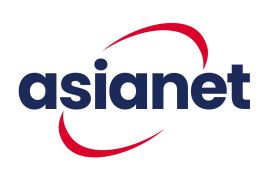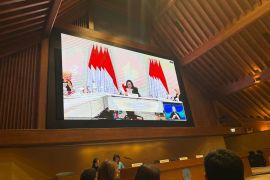Trade Minister Enggartiasto Lukito said that if retail or modern shops suffered shortage of supply, it would immediately be fulfilled, but if the shortage repeats, it could mean that irregularities might possibly happen.Jakarta (ANTARA News) - The Indonesian government will closely monitor the distribution of basic necessaries across the country to assure price stability ahead of the Islamic post-fasting holiday, Trade Minister Enggartiasto Lukito said here on Wednesday.
He stated that if retail or modern shops suffered shortage of supply, it would immediately be fulfilled, but if the shortage repeats, it could mean that irregularities might possibly happen.
"If the shortage continues, we will check and conduct an audit. We will check when the stock arrives. If it is received today, and it runs out the same day, we will see the transactions," he stated.
Enggartiasto noted that supervision would be carried out at producers as well as at traditional marketplaces to assure enough supply of basic necessities ahead of the Eid holiday that would be marked later this month.
"Supply would be monitored at traditional places as well as modern marketplaces. Officers would be sent to check stocks at modern retail outlets," he remarked.
With regard to controlling prices and supply, the ministry of trade has facilitated cooperation among business entities such as between the Association of Indonesian Retail Businessmen ((Aprindo) and sugar distributors, GIMNI (Association of Indonesia Vegetable Industries), AIMMI (Indonesian Oleofood Industry Association), and ADDI (Association of Indonesia Meat Distributors).
Based on their agreement, the selling price of sugar at modern retail shops is set at Rp12.5 thousand per kilogram, while the price of packaged cooking oil is set at Rp11 thousand per litres, and frozen meat at Rp80 thousand per kilogram.
Agreements have also been made between the Association of Traditional Market Traders (IKAPPI); the Association of Market Traders Across Indonesia (APPSI); and the Logistics Agency, GIMNI, and ADDI.
Based on the memorandum of understanding between IKAPPI, APPSI, and Bulog, the maximum selling retail price of rice for traditional market traders is set at Rp9.5 thousand per kilogram, sugar at Rp12.5 thousand per kilogram, and cooking oil at Rp11 thousand per liter, while the price of shallots is set at Rp32 thousand per kilogram and garlic at Rp30 thousand per kilogram.
"The lowering of prices at traditional marketplace has not been drastic because old supply is still available, he noted.
He added that he hoped the agreements could cut distribution chains as traditional market traders would get supplies directly from producers and may sell them at a prices equal to that at modern retail shops.
Each party is requested to report distribution of basic necessaries in line with the agreement every month to the Director General of Domestic Trade through the Director of Basic Necessaries and Important Goods.(*)
Editor: Heru Purwanto
Copyright © ANTARA 2017











